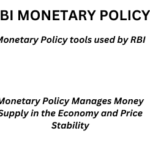Rotavirus vaccine launched under immunization drive

The health ministry launched the rotavirus vaccine as part of its universal immunisation programme to prevent diarrhoeal deaths due to the virus which claims lives of nearly one lakh children every year. Rotavirus, a leading cause of severe diarrhoea and death among children less than five years of age, is responsible for around 10% of total child mortality every year.
Adding this life-saving vaccine to immunisation programme will not only improve the health of children in India but also reduce hospitalisation and other conditions associated with diarrhoea due to rotavirus such as malnutrition and delayed physical and mental development among children. Reduced hospitalisation eases the economic burden on the family and the health cost burden on the country. The vaccine, developed by Indian firm Bharat Biotech will be initially introduced in four states – Andhra Pradesh, Haryana, Himachal Pradesh and Odisha. Its coverage will be expanded to the entire country in a phased manner.
BACKGROUND/CROSS REFRENCES
India has the highest under-five death toll globally, approximately 20% of which is attributed to vaccine-preventable diseases. India’s Universal Immunization Programme (UIP) is working both to increase immunization coverage and to introduce new vaccinesfor protection of children from life threatening conditions, which are preventable.It is one of the largest immunization programmes in the world and a major public health intervention in the country.
Immunization Programme in India was introduced in 1978 as Expanded Programme of Immunization (EPI). The programme gained momentum in 1985 and was expanded as Universal Immunization Programme (UIP) to be implemented in phased manner to cover all districts in the country by 1989-90.
UIP become a part of Child Survival and Safe Motherhood Programme in 1992. Since, 1997, immunization activities have been an important component of National Reproductive and Child Health Programme and is currently one of the key areas under National Rural Health Mission (NHM) since 2005.
Under the Universal Immunization Programme, Government of India is providing vaccination to prevent eight vaccine preventable diseases nationally, i.e. Diphtheria, Pertussis, Tetanus, Polio, Measles, severe form of Childhood Tuberculosis and Hepatitis B and meningitis & pneumonia caused by Haemophilus influenza type B, and against Japanese Encephalitis in selected districts.
Mission Indradhanush: Launched on 25th December, 2014, this seeks to drive towards 90% full immunization coverage of India and sustain the same by year 2020. The objective of Mission Indradhanush is to fully immunize more than 89 lakh children who are either unvaccinated or partially vaccinated; those that have not been covered during the rounds of routine immunization for various reasons. Vaccination will be provided against seven vaccine preventable diseases, i.e. diphtheria, whooping cough, tetanus, polio, tuberculosis, measles and hepatitis-B. In addition, vaccination against Japanese Encephalitis and Haemophilus influenza type b will be provided in selected districts/states of the country. Pregnant women will also be immunised against tetanus.
Rotavirus disease is most common in infants and young children. However, older children and adults and can also become infected with rotavirus. Once a person has been exposed to rotavirus, it takes about 2 days for the symptoms to appear.Children who get infected may have severe watery diarrhea, often with vomiting, fever, and abdominal pain. Vomiting and watery diarrhea can last from 3 to 8 days. Additional symptoms include loss of appetite and dehydration (loss of body fluids), which can be especially harmful for infants and young children. The virus spreads rapidly, presumably through person-to-person contact, airborne droplets, or possibly contact with contaminated toys.





0 Comments